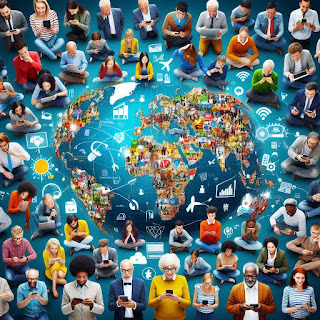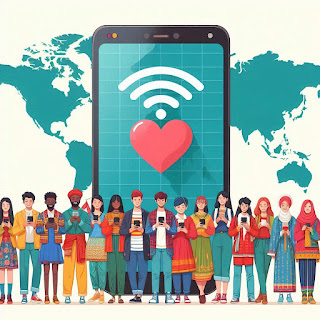Every year, on the 17th of May, we celebrate World Telecommunication and Information Society Day. This significant day serves as a reminder of the profound impact telecommunications and information technologies have on our societies and economies. In 2024, the theme of World Telecommunication and Information Society Day 2024 focuses on "Bridging the Digital Divide," highlighting the urgent need to ensure that all individuals, regardless of their location or socio-economic status, have access to reliable and affordable digital resources.
Understanding the Importance of World Telecommunication and Information Society Day 2024The digital divide refers to the gap between individuals who have easy access to digital and information technology and those who do not. On World Telecommunication and Information Society Day 2024, it is crucial to acknowledge that this divide is not just about access to technology, but also about the skills and opportunities needed to use these technologies effectively. In many parts of the world, particularly in rural and underdeveloped areas, the lack of infrastructure, education, and economic resources limits the ability to benefit from digital advancements.
To commemorate World Telecommunication and Information Society Day 2024, numerous global initiatives and partnerships are being highlighted. Organizations like the International Telecommunication Union (ITU) are at the forefront, working tirelessly to ensure that ICT reaches the most remote and underserved areas. These efforts include expanding broadband access, promoting digital literacy, and supporting policies that foster digital inclusion.
One such initiative is the ITU's “Connect 2030 Agenda,” which aims to bridge the digital divide by 2030. This ambitious plan focuses on five key areas: growth, inclusiveness, sustainability, innovation, and partnership. By addressing these areas, the ITU hopes to create a more equitable digital landscape, ensuring that everyone can participate in the digital economy.
On World Telecommunication and Information Society Day 2024, it is essential to highlight the critical role that both governments and the private sector play in bridging the digital divide. Governments must invest in infrastructure, implement supportive policies, and provide education and training to build digital skills. Meanwhile, the private sector can contribute through innovation, investment, and collaboration with public entities to extend their reach and impact.
In many countries, public-private partnerships have proven effective in enhancing digital accessibility. For instance, initiatives like Google’s Project Loon, which aims to provide internet connectivity through high-altitude balloons, demonstrate the potential of innovative solutions to address connectivity challenges.
Education and Digital Literacy
Educational institutions, NGOs, and community groups play a pivotal role in these efforts. By providing training and resources, they help individuals develop the competencies needed to participate in the digital world effectively. Furthermore, integrating ICT education into school curriculums from an early age can ensure that future generations are well-prepared for the demands of the digital economy.
World Telecommunication and Information Society Day 2024 is also a time to celebrate the innovations and success stories that have made a positive impact on bridging the digital divide. From low-cost smartphones and community Wi-Fi projects to e-learning platforms and telemedicine services, numerous initiatives have brought significant improvements to the lives of many.
As we look towards the future on World Telecommunication and Information Society Day 2024, it is clear that achieving digital inclusion is a complex and ongoing challenge. It requires sustained effort, collaboration, and innovation. By continuing to invest in infrastructure, promote digital literacy, and support inclusive policies, we can move closer to a world where everyone can benefit from the opportunities that digital technologies provide.












